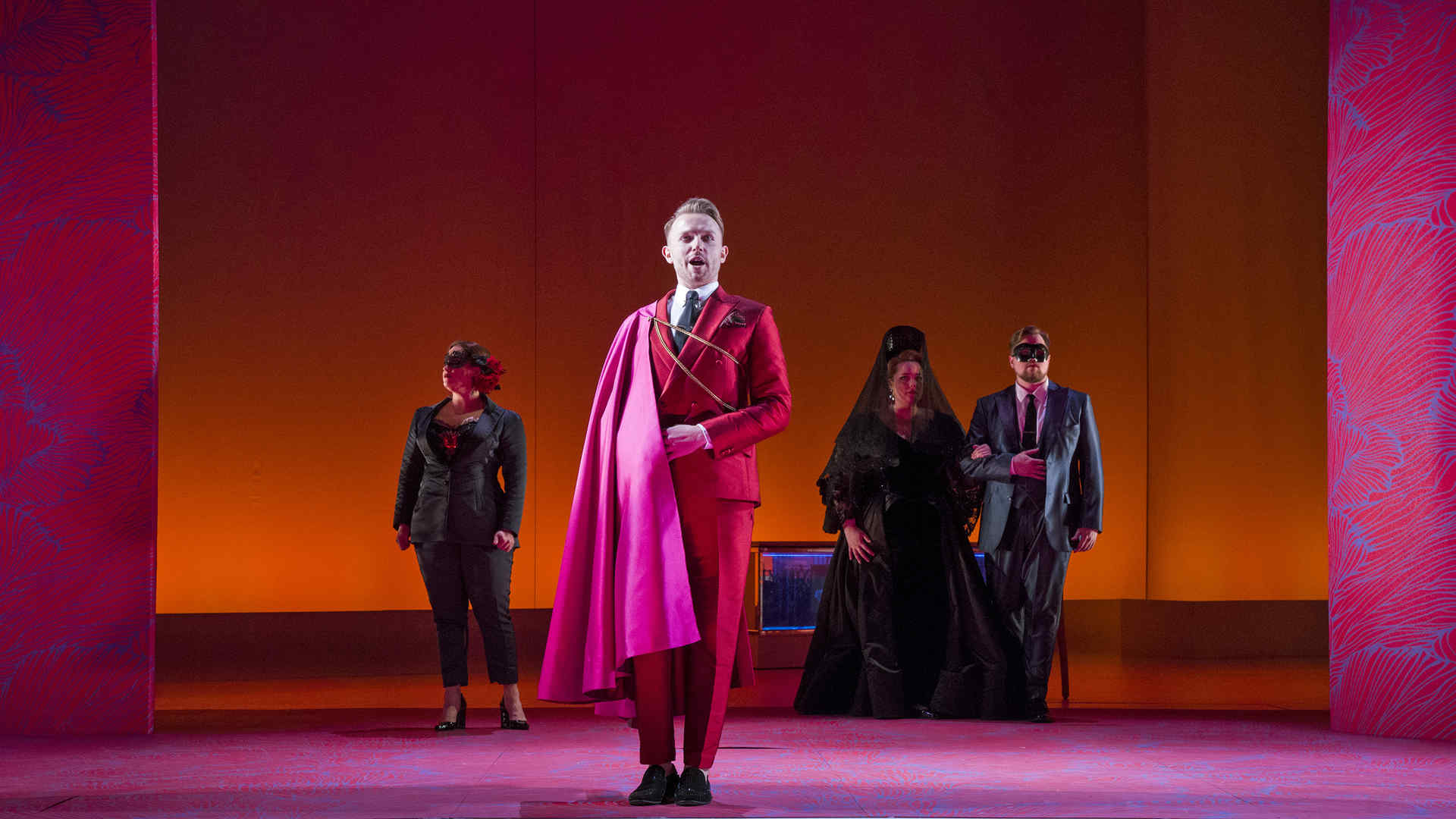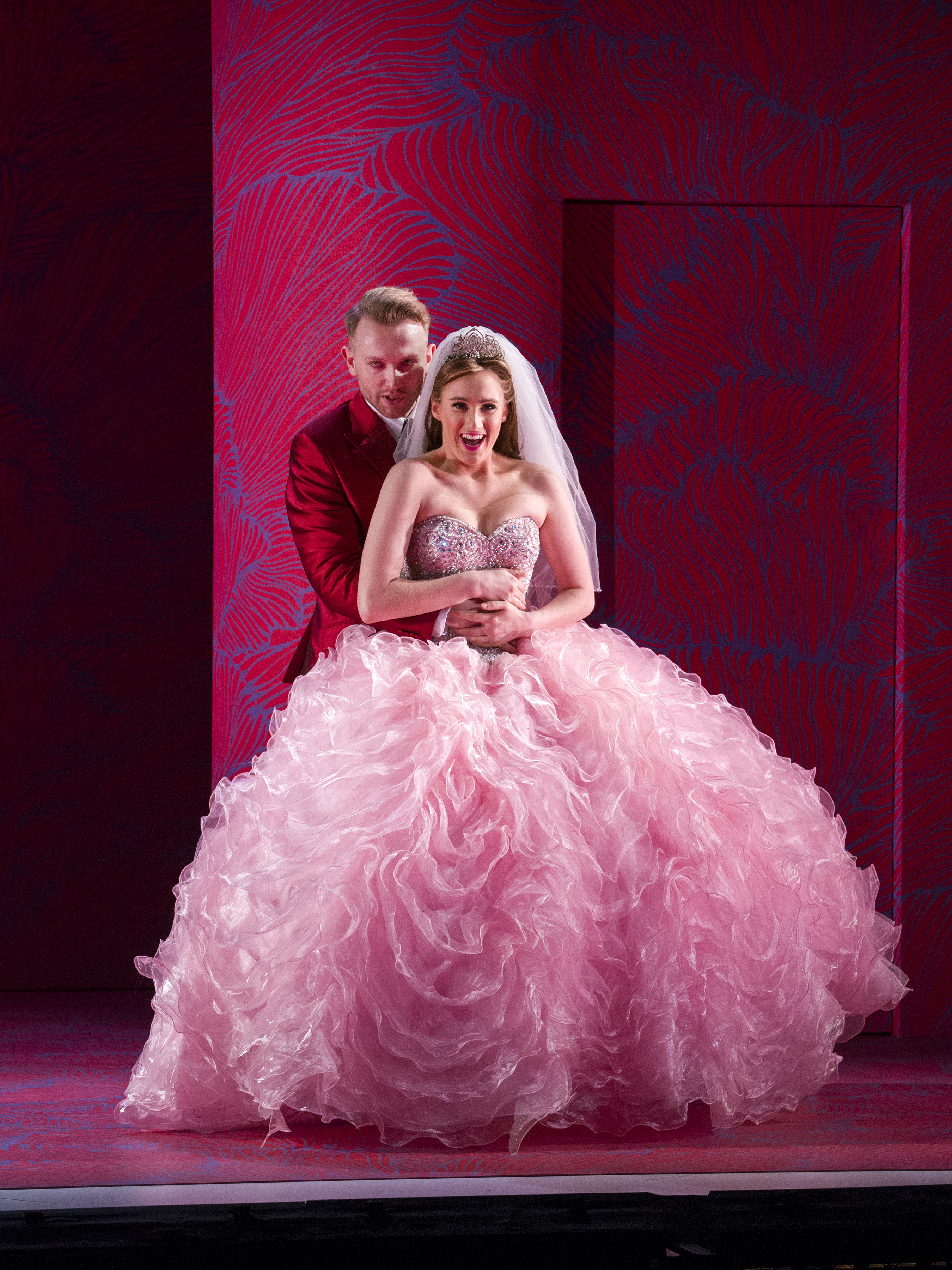
Emma Griffin directs and Joseph Colaneri conducts Don Giovanni at Juilliard, April 24-28
This spring affords operagoing New Yorkers two opportunities to see Mozart’s Don Giovanni at Lincoln Center; those who attend Juilliard Opera’s production (April 24-28) may have caught the season’s final performances at the Met just a week earlier. The work’s popularity is merited—Don Giovanni is a magnificent opera. Mozart’s music, variously charming and terrifying, breathes life into the story’s alluring, alarming combination of rape, murder—and of course a supernatural twist—to make a masterpiece that performers and the public have adored for generations.
“It’s one of those pieces—like a King Lear or Falstaff. You can go back to it again and again,” said Emma Griffin, who will direct Juilliard’s upcoming production. This production will be Griffin’s second encounter with the Don. Her first staging of Don Giovanni, with the midsize Boston Lyric Opera in 2015, told the story from the female viewpoints of Donna Anna, Donna Elvira, and Zerlina. Since then, “there’s been a huge change in the national conversation,” Griffin observed. “I feel different, the times feel different.” And while two members of her creative team worked with her on the Boston production (scenic designer Laura Jellinek and lighting designer Mark Barton), Griffin says the Boston production has informed their concept for Juilliard’s merely “insofar as we have all spent a lot of time working on Giovanni.”

Griffin expressed her enthusiasm to get to work rehearsing, surely aware of what’s at stake in tackling a work so beloved, well-known, and burdened by performance tradition, but with the attitude that Don Giovanni “is not this object that you approach—it is as mutable and changeable as any of us.”
Of particular interest is Griffin’s perspective on the time period in which she sets the show, and she says that the question—period or contemporary staging?—has come up repeatedly in discussions about the project. Her answer is nuanced. “It’s certainly not in period,” Griffin says, “although there are nods to period. It is more now than not now.” Griffin sees the representation of time in the production as a hook into the timelessness of the Don Giovanni story. “For me, performance—even if we were doing it in full period—is of the moment. It’s always happening right now.” In other words, Don Giovanni the libertine is not some oddity plucked out of the 17th or 18th century, but a figure we meet again and again. “I’ve met a lot of Don Giovannis. He’s not a unique creature, and I think that’s an important thing to acknowledge.”
Griffin and her family recently relocated to Maplewood, New Jersey, from Ohio, where she spent four years working at Cincinnati Conservatory of Music; it was announced last summer that Griffin had been appointed managing artistic director of Mannes Opera, succeeding conductor Joseph Colaneri, who is moving on from that role after two decades. And in a coincidence that could have been dreamt up by Mozart, Colaneri will conduct the Juilliard Orchestra in this production. (Though they had known of one another, Griffin and Colaneri first met while working on this project.)
Griffin grew up in Northampton, Massachusetts, and her parents—her father, a businessman, and mother, a scientist— were neither particularly musical nor artistic, though Griffin says performing arts, music, movies, and books were always a huge part of her life. She then moved to New York City to study theater at NYU. Describing her path into the opera field as very much “not a straight line,” Griffin attributes her initial foray into opera—she directed Mozart’s Die Zauberflöte for the Curtis Institute’s Opera Theatre in 2005—to her appeal as a “young, hip New York director who knew what to do with a lot of people on stage. All my training was in theater and I ran a theater company.” For many years her work was more evenly split between opera and theater before she started taking on more opera work as “those jobs felt more exciting and satisfying,” she said. At Juilliard, she directed The Cunning Little Vixen in 2013 and Les mamelles de Tirésias in 2010.
The title role in this production will be double-cast—shared by Hubert Zapiór and Xiaomeng Zhang. Rounding out the cast are William Guanbo Su (Il Commendatore), Meghan Kasanders (Donna Anna), James Ley (Don Ottavio), Maritina Tampakopoulos (Donna Elvira), Erik Van Heyningen (Leporello), Gregory Feldmann (Masetto), and Jessica Niles (Zerlina).
Joshua Simka (BM ’14, voice) is the assistant editor of the Journal